Find a Trusted Family Therapist in California for Lasting Healing and Stronger Relationships
When you’re seeking a family therapist in California, it can feel overwhelming, with so many options, different specialties, and sometimes unclear credentials. But with the right approach, you can find a trusted, competent therapist who meets your family’s needs. At The Cave Clinical Services, we guide families across California toward meaningful healing and stronger relationships — and in this guide, we’ll walk you step by step through how to find a family therapist near you, what to look for, and how to ensure a good match.
Why Finding the Right Family Therapist Matters
Choosing a therapist isn’t just checking a box — your relationship with that counselor can significantly influence outcomes.
- Therapeutic alliance (trust, rapport) is one of the strongest predictors of success.
- A therapist unfamiliar with California’s cultural, legal, or community context may miss critical nuances.
- Family therapy often involves sensitive issues involving multiple members — you want someone experienced with relational systems, child-parent dynamics, or multigenerational conflicts.
At The Cave Clinical Services, we emphasize not just credentials, but compatibility: experience, cultural sensitivity, communication style, and modalities that suit your family’s values.
Key Credentials & Licenses to Look For
When you’re evaluating potential therapists in CA, these credentials and licensure indicators are essential.
Licensed Marriage and Family Therapist (LMFT)
In California, LMFT is a primary license for those specializing in relational, family, and systemic therapy. Verified via the California Board of Behavioral Sciences.
Licensed Clinical Social Worker (LCSW), Licensed Professional Clinical Counselor (LPCC)
These therapists may also do family work, especially if they have additional relational training.
Psychologist / Clinical Psychologists
If they have training or specialization in family systems or couples work, they can also be valid options.
Memberships in Professional Networks
Affiliations with organizations like CAMFT (California Association of Marriage and Family Therapists) add assurance that the therapist adheres to ethical standards.
Always verify licensure status through state boards or official directories; it ensures they have met education, supervision, and ethics requirements.
Questions to Ask When Interviewing a Family Therapist
Before you commit, interviewing a prospective therapist helps you assess fit. Consider asking:
Experience & Specialization
- “Do you have experience with families in similar situations (e.g, blended families, high conflict, adoptive families)?”
- “Which therapeutic models do you use for family therapy (e.g, structural family therapy, Bowenian, systemic, narrative)?”
Logistics & Practicalities
- “Do you offer in-person sessions, telehealth, or hybrid models?”
- “Which insurance do you accept? Do you offer sliding scale or reduced-fee slots?”
- “What is your cancellation and rescheduling policy?”
Approach, Goals & Process
- “How long do you typically work with families?”
- “What does success look like in your therapy work?”
- “How often do sessions occur, and will all family members (children, parents) attend?”
Confidentiality & Ethical Questions
- “How do you handle confidentiality when children are involved?”
- “If I am unhappy with progress, how would we address that?”
At The Cave Clinical Services, we encourage families to take this interview mindset — it ensures transparency and mutual alignment from the start.
Factors That Influence the Best Therapist Match
Even highly qualified therapists won’t fit every family. These factors can matter just as much as credentials.
Cultural & Value Alignment
Ethnicity, religion, language, or cultural understanding can influence comfort and trust. In California’s diversity, this is particularly important.
Communication Style & Personality
Some therapists are warm and nurturing, others direct and structured. Choose someone whose style complements your family dynamics.
Availability & Proximity
Travel time, schedule compatibility, and distance (or quality of telehealth connection) matter heavily to whether you’ll persist with therapy.
Approach to Therapy
Some therapists work more directly (assigning tasks, homework), while others are more exploration-based. Decide what feels more comfortable and productive for you.
Telehealth vs. In-Person Family Therapy in California
The COVID era expanded teletherapy, and many families now prefer flexible models.
Benefits of Telehealth
- Accessible across rural or underserved regions
- No commuting, better convenience
- Often easier to coordinate schedules
When In-Person Is Better
- For very young children or therapeutic play work
- When non-verbal cues and physical presence matter
- Where technical connectivity is an issue
Most therapists at The Cave Clinical Services offer both modalities and will recommend hybrid models depending on your goals.
Estimating Cost & Insurance for Family Therapy
Understanding finances ahead of time helps reduce barriers to care.
Typical Rates & Sliding Scales
Rates vary broadly in California. Many therapists reserve some sliding-scale or reduced-fee slots for qualifying clients.
Insurance & Reimbursement
- Confirm with your insurance provider whether “family therapy” or “couples & relational therapy” is covered.
- Therapists may be in-network or out-of-network; out-of-network may allow you to submit claims yourself.
- Platforms like Headway help you find therapists who take insurance coverage.
Low-Cost or Community Resources
- University psychology or family therapy training clinics
- Community mental health centers
- Non-profit counseling agencies
At The Cave Clinical Services, we provide transparent cost estimates and help with navigating insurance questions.
How to Prepare for Your First Family Therapy Session
Showing up prepared can make that first session more meaningful.
Clarify Goals & Expectations
Discuss within your family: What do you hope will improve? Communication? Boundaries? Conflict? Write down priorities.
Agree on Participation
Who will attend? How often? Are children involved? Will sessions be joint or split?
Be Ready for Disclosure
Therapy invites vulnerability. Consider what you’re willing to share, and consider asking the therapist about confidentiality boundaries.
Bring Relevant History
Medical or mental health issues, family structure, and major stressors help the therapist quickly understand your context.
Plan Consistency
Treat therapy like a commitment; showing up regularly yields better progress than sporadic attendance.
How Long Does Family Therapy Usually Last?
Therapeutic duration varies depending on issues, goals, and commitment.
- Short-term models: typically 8–20 sessions (solution-focused, time-limited)
- Long-term or ongoing therapy: for more complex or deep-seated relational issues
- Checkpoints: therapists may reassess progress periodically
At The Cave Clinical Services, we outline a therapy roadmap collaboratively so you and your family know what to expect and when to evaluate progress.
Red Flags & When to Switch Therapists
Not every therapist will be the perfect fit. Watch for:
- Lack of progress or recurring unresolved conflicts
- Feeling unsafe, unheard, or judged
- Persistent resistance to communication or therapy structure
- Poor professional boundaries or ethical concerns
Switching therapists is not a failure — it’s part of finding the right fit. A good therapist supports that process actively.
Why Choose The Cave Clinical Services in California
Local Expertise & Relational Focus
As a California-based service, The Cave Clinical Services understands local laws, culture, and community context — helping tailor therapy to your lived experience.
Family-Centered & Systemic Approach
We view families as systems. Our therapists use evidence-based relational models to help every member be heard and understood.
Flexible Formats
We offer in-person sessions (where feasible) and telehealth options to accommodate families across California.
Transparent Pricing & Insurance Guidance
We help clients navigate costs, insurance submission, and sliding-scale eligibility so finances aren’t an obstacle to healing.
Strong Emphasis on Ethical & Ongoing Growth
Our therapists maintain continuing education, peer review, and supervision to ensure high ethical standards and quality care.
Frequently Asked Questions
Can family therapy help with teenage rebellion?
Yes — family therapy can help improve communication, boundaries, and mutual understanding, reducing tension and rebellious behaviors over time.
Will couples therapy be part of family therapy?
Often, many family system issues overlap with couple dynamics. Therapists may incorporate couples therapy techniques where needed.
What if some family members refuse therapy?
You can begin with willing members. A therapist can help gradually bring others in or work with partial participation.
Is therapy confidential if I involve my children?
Yes, but therapists may set rules for what’s shared between family members versus private individual sessions.
Is virtual family therapy as effective?
Research and practice suggest telehealth therapy can be just as impactful, especially when all parties engage actively and have a stable connection.
Final Thoughts: Taking the First Step Toward Healing
Finding a trusted family therapist in California is a proactive decision for relational wellness. While it may feel uncertain at first, following this roadmap—checking credentials, interviewing potential therapists, clarifying goals, and choosing a relationally aligned clinician—sets your family on the growth path.
At The Cave Clinical Services, we stand ready to support you in that journey. Our goal is to help California families find clarity, connection, and lasting change through expert, compassionate relational care.

